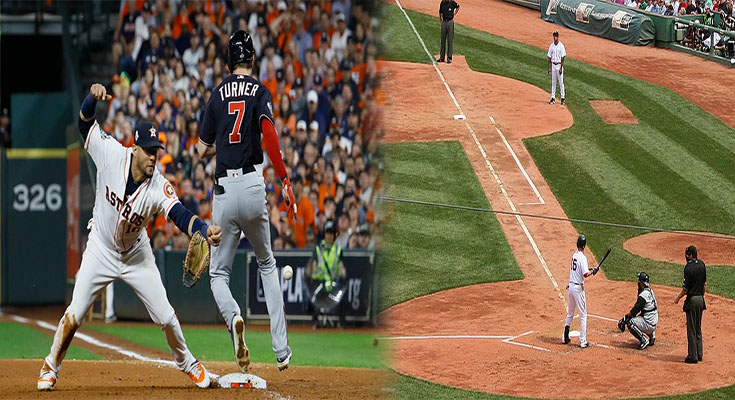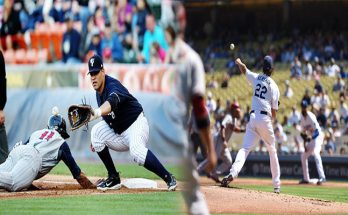In the game of baseball, runner interference is a crucial aspect that both players and fans need to comprehend. This form of interference occurs when a runner hinders the defensive player’s ability to make a play. It is important to understand the rules surrounding this topic, as it can greatly impact the outcome of a game.
Definition of Runner Interference
Runner interference occurs when a base runner impedes, hinders, or obstructs a defensive player from executing a play. It can happen in various situations, such as during a relay throw, a tag attempt, or a double play attempt. The objective of these rules is to ensure fair play and protect the defensive player’s ability to make a play.
Types of Runner Interference
- Physical Interference: This is the most common form of runner interference, where the runner physically obstructs the defensive player. It could include actions like intentionally bumping into a fielder to prevent a throw, intentionally colliding with a fielder to disrupt a catch, or deviating from their base path to impede a tag.
- Verbal Interference: Although less frequent, verbal interference can also be considered runner interference. This occurs when a runner shouts or makes distracting noises with the intent to distract the defensive player during a play.
Runner Interference Calls
When runner interference is suspected, the umpire will make a judgment call based on the situation at hand. The severity of the interference, the intent of the runner, and the impact on the play are all factors that come into play when making the call. Here are some common situations that may result in a runner interference call:
- Collision at a Base: If the runner intentionally makes contact with a fielder at a base, hindering their ability to make a play, the umpire may declare runner interference.
- Obstructing the Fielder’s Vision: If a runner deliberately interferes with a fielder’s ability to see the play, for example, by waving their hands or standing near the fielder’s line of sight, runner interference may be called.
- Interfering with a Tag: If a runner deviates from their base path to intentionally impede a tag attempt, resulting in an unsuccessful tag, runner interference may be called.
Consequences of Runner Interference
Once runner interference is called, various consequences may follow depending on the situation:
- Out Call: The runner interfering with the defensive player may be declared out, and any other runners potentially affected may be returned to their previous bases.
- Double Play: If the interference occurs during a double play attempt, both the initial runner and the batter may be declared out.
- No Call: In some situations, the umpire may determine that the interference had no significant impact on the play, and no call will be made. The game will continue without any consequences.
Prevention and Fair Play
Understanding and abiding by the rules regarding runner interference can help maintain fair play during a baseball game. Awareness of the situation, muting distractions, and respecting the base paths are crucial factors for runners to consider. Coaches and officials should also educate players on the rules to avoid unnecessary confusion or disputes.
Runner interference is an important concept to grasp in the world of baseball. Knowing the different types of interference, potential consequences, and how to prevent it help ensure a fair and enjoyable game for all players and spectators. So, next time you’re watching a game or stepping on the diamond, keep these rules in mind to enhance your understanding and appreciation for baseball.





